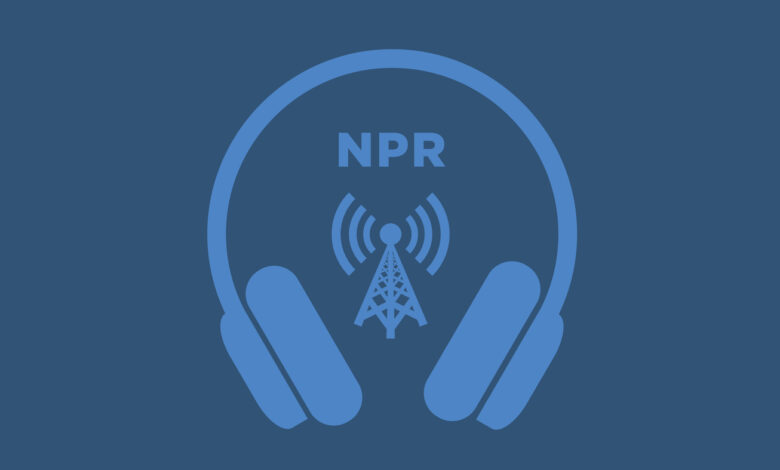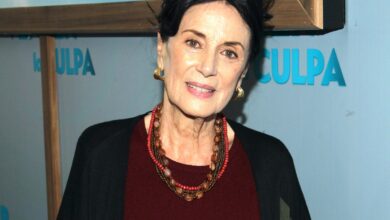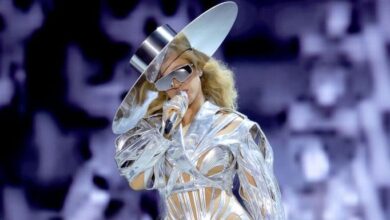This Navajo woman is encouraging other Indigenous entrepreneurs : NPR

A Navajo woman who found success in Silicon Valley returned home to start a new business incubator on her reservation.
MARY LOUISE KELLY, HOST:
Of the millions of businesses in the U.S., just 1% are owned by Native Americans. A Navajo-led nonprofit in Arizona wants to change that without losing Indigenous ways of thinking, where bonds of kinship can matter more than the bottom line. From member station KNAU, Melissa Sevigny reports.
MELISSA SEVIGNY, BYLINE: At the age of 18, Heather Fleming moved from her home on the Navajo Nation to the Bay Area and started a design firm there, captivated by Silicon Valley ideals of fast growth and high revenue.
HEATHER FLEMING: And when I came back to the reservation, initially I brought all those concepts and ideas with me. And I was frustrated by how slow everything moved – so slow.
SEVIGNY: But then she began to feel Silicon Valley could learn something from the Native way of doing business.
FLEMING: Success isn’t necessarily defined by how much money you make. Instead, we look at metrics like the impact that we have on our communities and community wellbeing.
SEVIGNY: Fleming started Change Labs in 2019 to empower Native American-owned businesses. It’s uphill work. A study commissioned by the nonprofit found on Navajo land, it takes seven times as long to start a business and costs twice as much as it does off the reservation. Fleming says her Dine language doesn’t even have a word for entrepreneur.
FLEMING: And I think that’s part of the challenge – is that when we talk about these things, we talk about it in the context that it’s something that we’re borrowing from another culture.
(SOUNDBITE OF METAL CLANGING)
SEVIGNY: When in reality, she says, silversmiths, weavers, farmers and sheepherders are small business owners.
(SOUNDBITE OF METAL CLANGING)
SEVIGNY: People like Leander Guy Thomas, a busy farrier who shoes horses all over northern Arizona.
LEANDER GUY THOMAS: It’s a dying breed, you know? No one wants to do it no more, you know?
SEVIGNY: Thomas learned his skills growing up on the Navajo Nation. But he didn’t know how to turn it into a business until he enrolled in Change Labs’ yearlong incubator program.
THOMAS: You know, I knew some of the basics, but I think Change Labs really helped me with that where I got my in-tax number. You know, right now I got a bookkeeper. Not only that – you know, it opens up opportunities for loans.
SEVIGNY: Loans are hard to get because Native land is held in trust by the federal government, so banks won’t accept it as collateral. That’s just one of many obstacles, says Dan Stewart, professor of entrepreneurship at Gonzaga University and member of the Spokane Tribe of Indians. He says there’s also geographic isolation, murky codes and laws. And…
DAN STEWART: We just don’t have a lot of people in Native communities who are trained on how to run a business.
SEVIGNY: Stewart says the non-Native students in his classes often come from business-minded families.
STEWART: So they’ve grown up understanding business and family businesses, seeing how that works. Because Native Americans are underrepresented as business owners and entrepreneurs, people don’t grow up seeing that as an aspirational thing that they should do.
SEVIGNY: Many Native people end up leaving their reservations to find work. Delphina Begay did. Then she came back to the Navajo Nation, enrolled in Change Labs’ incubator program and started a bookkeeping business that serves other Native-run companies.
DELPHINA BEGAY: I decided to go home. And just, like – that was something, like, I told myself – is, let me go home and work for my people and see what’s going to happen.
SEVIGNY: Begay says there is economic opportunity in Indian country. It’s rooted in kinship, community members investing in one another.
BEGAY: Those are the things that really, I think, is beautiful – just to start establishing generational wealth.
SEVIGNY: Wealth for new generations that will finally see themselves reflected in the business world. For NPR News, I’m Melissa Sevigny.
(SOUNDBITE OF ATMOSPHERE SONG, “OKAY”)
Copyright © 2023 NPR. All rights reserved. Visit our website terms of use and permissions pages at www.npr.org for further information.
NPR transcripts are created on a rush deadline by an NPR contractor. This text may not be in its final form and may be updated or revised in the future. Accuracy and availability may vary. The authoritative record of NPR’s programming is the audio record.





